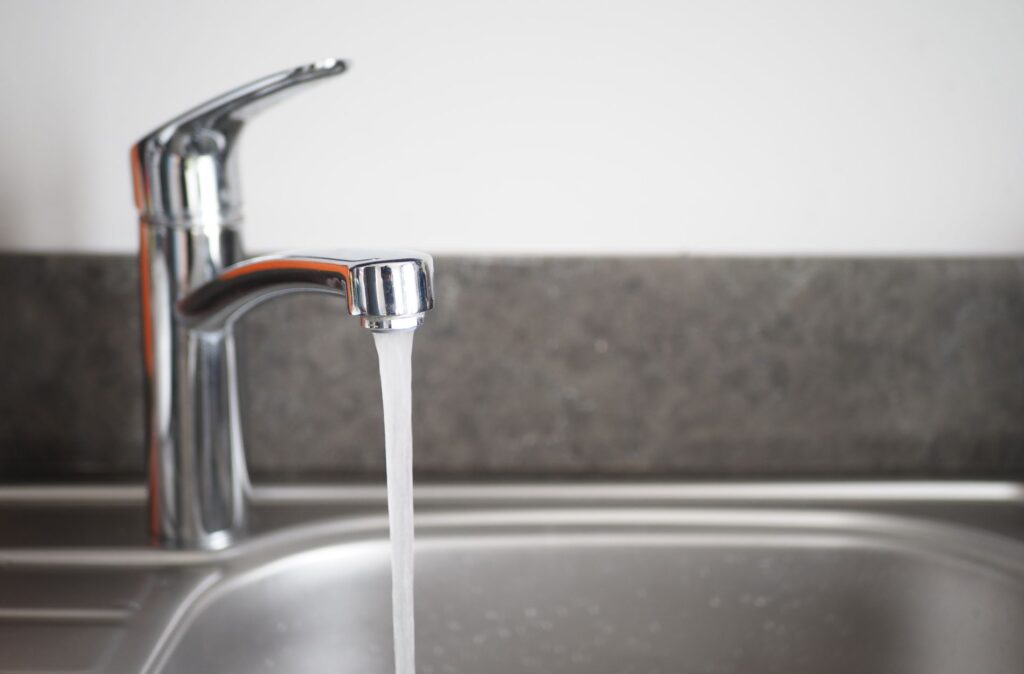How a Water Softener Can Improve Your Household Water
Water quality is an essential aspect of a comfortable and efficient home. Hard water, which contains high levels of minerals like calcium and magnesium, can cause a range of issues, including scale build-up in pipes and appliances, dry skin, and dull hair. A water softener can address these problems and provide numerous benefits for your household.

What is a Water Softener and How Does It Work?
A water softener is a device designed to remove hard minerals, primarily calcium and magnesium, from your household water. These minerals cause hard water, which can lead to various problems, including limescale build-up, reduced efficiency of water heaters, and poor soap performance. The water softener operates through a process called ion exchange.
The ion exchange process involves resin beads inside the water softener tank. When hard water passes through the tank, the resin beads attract and hold onto the hard minerals, replacing them with sodium or potassium ions. This exchange removes the hardness from the water, making it soft. The softened water then flows through your home’s plumbing system, ensuring appliances and fixtures receive water free of hard minerals.
Occasionally, the resin beads become saturated with hard minerals and must be regenerated. The water softener enters a regeneration cycle, where a brine solution flushes the beads, removing the accumulated minerals and replenishing the sodium or potassium ions. This cycle typically happens automatically based on the water usage in your household.
Benefits of Using a Water Softener in Your Home
Using a water softener in your home can significantly improve the quality of your water and enhance the performance of your appliances. One of the primary benefits is the reduction of limescale build-up in pipes, faucets, and appliances. Limescale can reduce the efficiency of water heaters and lead to costly water heater repair or replacement. By using a water softener, you protect your appliances, such as tankless water heaters, from mineral deposits.
Another advantage of softened water is its impact on your skin and hair. Hard water can leave a residue that makes skin and hair feel dry and sticky. Soft water, on the other hand, rinses clean and leaves your skin feeling smoother and your hair shinier. This benefit extends to cleaning and bathing, where soap and detergent lather better and rinse away more effectively in soft water.
Additionally, a water softener improves the effectiveness of your water filtration system. By removing hard minerals before the water reaches the filtration system, you enhance the lifespan and efficiency of your filters. This results in cleaner, better-tasting water throughout your home. Our professionals can seamlessly integrate a water softener with other water treatment systems to ensure you enjoy high-quality water at all times.
Signs Your Household Needs a Water Softener
Recognizing the signs that your household needs a water softener can help you address water quality issues before they become bigger problems. One of the most noticeable signs is the presence of hard water stains on dishes, glassware, and fixtures. These stains result from mineral deposits left behind when water evaporates, and they can be difficult to remove.
Another indication that you might need a water softener is the frequent need for water heater repair. Hard water can cause mineral build-up inside your water heater, reducing its efficiency and lifespan. This build-up forces your water heater to work harder, leading to higher energy bills and more frequent repairs.
Additional signs include dry and itchy skin, dull hair, and laundry that feels stiff or scratchy. Hard water can affect how well soaps and detergents work, leaving residues on your skin, hair, and clothes. If you notice any of these signs, it’s a good idea to consult our professionals to determine if a water softener can improve your household water.
Integrating Water Softeners with Existing Systems
Integrating a water softener with your existing systems, such as tankless water heaters and water filtration systems, can provide a comprehensive solution to your water quality issues. Proper integration ensures that your entire household benefits from softened water, enhancing the performance and lifespan of your appliances.
When installing a water softener, it’s essential to consider its compatibility with your current plumbing and water treatment systems. For instance, a water softener should be installed before the water filtration system to prevent hard minerals from clogging the filters. Our technicians have the expertise to handle water heater installation and ensure that all systems work together seamlessly.
A water softener can also protect your tankless water heater from mineral build-up, improving its efficiency and reducing the need for water heater repair. By removing hard minerals from the water before it reaches the heater, you extend the lifespan of your appliances and save on maintenance costs. Our professionals can assess your current setup and recommend the best integration strategy for optimal performance.
Conclusion
A water softener can greatly enhance the quality of your household water, providing benefits such as reduced limescale build-up, softer skin and hair, and improved appliance efficiency. By recognizing the signs that your home may need a water softener and integrating it with existing systems, you can ensure a comprehensive and effective solution to hard water issues.
Our professionals at Texas Quality Plumbing are committed to helping you choose and install the best water softener in Bellaire. Whether you need a new installation or maintenance on your existing system, our experienced technicians are ready to provide expert guidance and top-notch service. Contact us today to schedule a consultation and start enjoying the benefits of softened water in your home.

